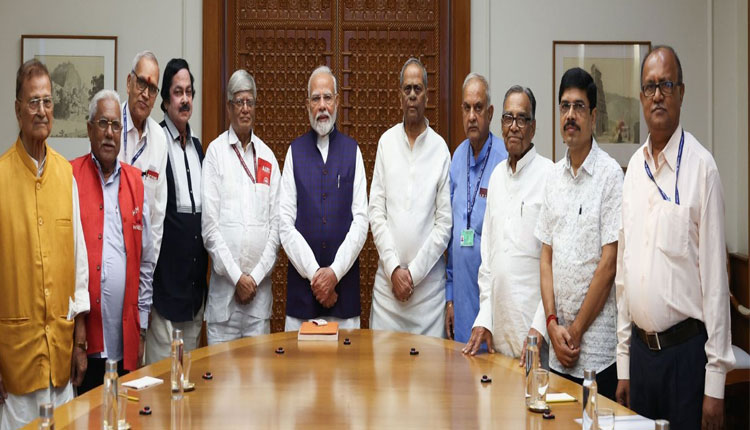New Delhi: In a significant development for government employees, the Modi government has implemented the Unified Pension Scheme (UPS) as a replacement for the old pension system. This decision comes as a much-awaited response to the longstanding demands of government employees for a more secure pension scheme. However, another major decision might be on the horizon, as Prime Minister Narendra Modi has hinted at revising the minimum wages for central government employees.
Upon his return from a visit to Ukraine, Prime Minister Modi met with representatives of the Joint Consultative Mechanism (JCM) on Saturday, August 24. The meeting focused on addressing various demands put forth by the JCM, a statutory body representing around 32 lakh central government employees. Among the key demands was the revision of minimum wages to Rs 32,500 per month.
The JCM also urged the Prime Minister to lift the ban on the creation of new posts in government departments, with a particular emphasis on the Railways. The current restrictions have been a point of concern, especially as the Railways employ a significant portion of the central workforce.
After the meeting, Prime Minister Modi took to social media to express his satisfaction with the Cabinet’s decision regarding the UPS, stating, “Met a delegation of JCM employee side for central government employees. They expressed happiness over the Cabinet decision regarding UPS.”
M. Raghavaiah, head of the National Council of JCM, confirmed that many of their demands had been positively received by the government. JCM Secretary Shiv Gopal Mishra further elaborated that the Prime Minister has shown a willingness to accept almost all of the demands raised during the discussions.
This move signals the government’s intention to address the financial concerns of its employees comprehensively, following the landmark pension reform. As the dialogue between the government and its employees progresses, central employees can anticipate further positive changes in their working conditions and benefits.



Comments are closed.